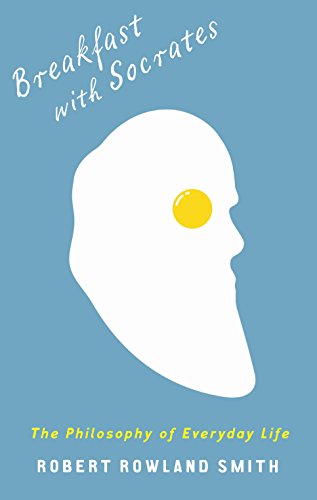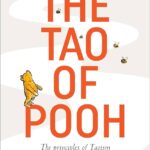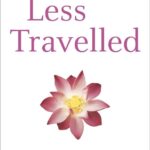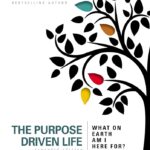Welcome, dear readers, to Thinkers Books. We are pleased to guide you on yet another intellectual exploration. Today, we delve into a unique book that promises to alter how you perceive your everyday life. We invite you to join us on this enlightening journey through ‘Breakfast With Socrates’ by Robert Rowland Smith.
Imagine if an enlightening philosophical insight accompanied every mundane activity of your day. That’s precisely the fascinating journey this book offers. ‘Breakfast With Socrates’ is an extraordinary piece of literature that takes us through an ordinary day, from the moment we wake up till we finally retire to bed. Each chapter is dedicated to a different daily activity. However, what sets this book apart is the unique lens through which these activities are viewed – the lens of philosophy. This book brilliantly intertwines philosophy with everyday life, revealing the profound within the prosaic.
In the opening chapters, Smith tackles the seemingly simple act of waking up. He presents it as a philosophical encounter with consciousness and existence, drawing on Thomas Hobbes’ theories. According to Smith, waking up is not just about regaining consciousness; it’s about confronting the reality of our existence.
Preparing to leave home becomes more than a routine as we progress through the day. Smith introduces Freud’s psychological conflict between the ego and the superego. It’s a battle between our desires and societal expectations, played out in the decisions we make each morning.
During the commute, Smith brings in Karl Marx, dissecting the monotony and alienation many of us feel. Marx’s critique of capitalism provides a stark perspective on our daily travels, highlighting the separation inherent in our modern lives.
At work, we find ourselves in the company of Plato and Friedrich Nietzsche. Smith uses their theories to explore the nature and purpose of employment, transforming it from a mere means of survival to a pursuit of passion and self-fulfilment.
Even activities like visiting the gym take on a new meaning. Smith brings in Immanuel Kant, whose moral philosophy questions the ethics of self-improvement. Are we improving for the right reasons or merely adhering to societal pressures?
Here are my Top 5 learning points from the book:
- Waking Up: Waking up is a confrontation with our consciousness and existence. It’s a moment of realisation that we exist, and every new day is an opportunity to engage with that existence.
- Leaving Home: The daily conflict between our desires and societal expectations mirrors Freud’s theory of the ego and superego. It’s a constant tug-of-war that shapes our decisions and actions.
- Commuting: Through Marx’s critique of capitalism, we can understand the alienation we often feel during our daily commute. It’s a reflection of the systemic issues in our society.
- Working: As seen through the eyes of Nietzsche, work is not just about earning a living. It’s also about pursuing passions and finding meaning in what we do.
- Detaching: Buddha’s teachings on non-attachment provide a fresh perspective on our materialistic lifestyles. It encourages us to appreciate the value of experiences over possessions.
‘Breakfast With Socrates’ is a masterclass in making philosophy accessible and relevant. Smith’s genius lies in linking complex philosophical theories with ordinary activities. It’s not just a book; it’s an engaging, practical guide to philosophical thinking.
I found this book to be an enlightening read. It has fundamentally changed the way I view my daily routines. Each page offered a new perspective and practice to understand and appreciate the mundane. It’s a book I’d recommend to anyone seeking to find depth in their everyday lives.
So, dear thinkers, how do you view your everyday activities now? Have you found a newfound appreciation for your morning coffee or perhaps discovered existentialism in your workout routine? We’d love to hear your thoughts.
As we conclude this exploration of ‘Breakfast With Socrates,’ we invite you to delve deeper into the world of insightful literature with Thinkers Books. As Socrates might have said, “An unexamined life is not worth living.” So, let’s continue examining, questioning, and, most importantly, thinking.
We look forward to accompanying you on your future literary adventures. Until next time, remember that even the most ordinary day can be an extraordinary journey. Stay curious, stay thoughtful, and keep exploring.







